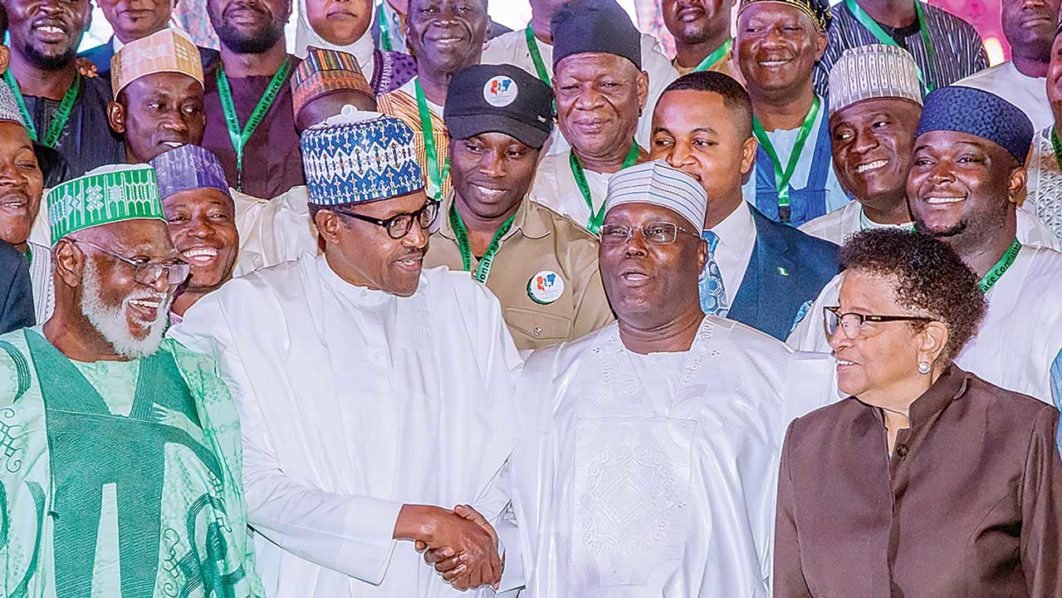
There has always been that benignness about humans, that kind disposition towards others that makes people donate to a cause. Crowdfunding has helped express our humanness better and easier.
Easily you could help an immigrant kid from a war-torn state through college, contribute to a cancer patient’s treatment, get the first African bobsled athletes to the Winter Olympics, and donate to a myriad of heart-moving causes.
These days, funding the legal case of a billionaire at a tribunal has also made the list.
The People’s Democratic Party’s presidential candidate in the 2019 elections, Alhaji Atiku Abubakar, has headed to court to contest the result of the presidential elections.
On Wednesday morning, about five GoFundMe accounts surfaced on the internet to gather contributions for the legal battle of the former vice president. One of them was tweeted by Segun Awaosanya, an activist. He tagged it the “official GoFundMe link” for people interested in supporting the defense of Atiku’s mandate in a credible Court of Law.
Crowdfunding was a big feature in the political campaigns of Nigeria’s 2019 elections. In the build-up to the general elections, particularly the presidential elections, there were a lot of new breeds who aimed ‘lofty heights’ in the Nigeria political space.
The upstarts could not compete with the financial muscle of the more established players in the All Progressives Congress (APC) and opposition Peoples Democratic Party (PDP). Hence the need to appeal to the ‘humanity’ of the others to crowdfund their political dreams.
These new political office seekers believe that the majority of Nigeria’s over 190 million population were frustrated with the rich political class and sought a way of having the poor masses finance the campaign of their preferred presidential candidate. And GoFundMe was their answer.
GoFundMe is not the first means of engaging the Nigerian public to generate resources for political motives. Nigeria’s president Muhammadu Buhari also raised campaign funds from the public in 2015.
Some members of the public, who believed in Buhari’s incorruptibility and ability to ‘change’ Nigeria, donated more than N50 million ($138, 494) to ensure his election campaigns.
In 2019, presidential candidates of Alliance for New Nigeria (ANN) Fela Durotoye, Omoyele Sowore of African Action Congress (AAC), Nigeria’s former education minister Ezekwesili, who campaigned on the platform of the Allied Congress Party of Nigeria (ACPN) all used GoFundMe to garner funds for their campaigns.
GoFundMe had a great financial impact on these presidential candidates afterwards. Ezekwesili’s campaign organisation disclosed that the former presidential candidate received a total sum of N48.9million in donations using the platform.
AAC’s Sowore reportedly got about $2 million for his presidential campaign during the fund crowdsourcing campaign on GoFundMe.
Durotoye of ANN during the campaigns were still on, said he had realised the total of $3,546 of his $500,000 intended goal in the crowdfunding initiative.
While politics is still deemed to be a terrain for the ‘rich and powerful’, financial crowdsourcing has proved to be the game leveller between established politicians and the beginners.
However, while Nigeria’s electoral body, the Independent National Electoral Commission (INEC) is empowered by the constitution to regulate the financing of election campaigns through the Electoral Act, politicians rarely operate within the dictates of the law.
According to Section 91(2) and 91(3) of the Electoral Act, the maximum election expenses to be incurred by a candidate at a presidential and governorship election shall be one billion Naira only and two hundred million Naira only respectively.
[ad unit=2]



